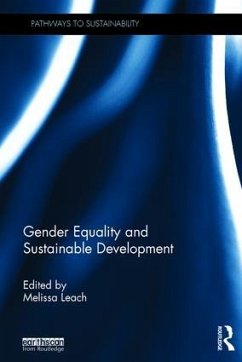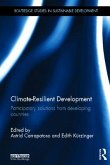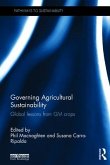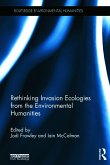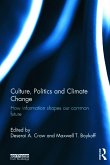This book calls for policies, investments and initiatives in sustainable development that recognize women's knowledge, agency and decision-making as fundamental. Such gender-equitable approaches can improve resource productivity and efficiency and enhance ecosystem conservation and sustainable use. They can also build fairer and greener economies, and more sustainable, low-carbon and climate-resilient food, energy, water and sanitation, and health systems. Four key sets of issues - work and industrial production; population and reproduction; food and agriculture, and water, sanitation and energy - provide focal lenses through which the book's chapters consider these challenges.
Hinweis: Dieser Artikel kann nur an eine deutsche Lieferadresse ausgeliefert werden.
Hinweis: Dieser Artikel kann nur an eine deutsche Lieferadresse ausgeliefert werden.

